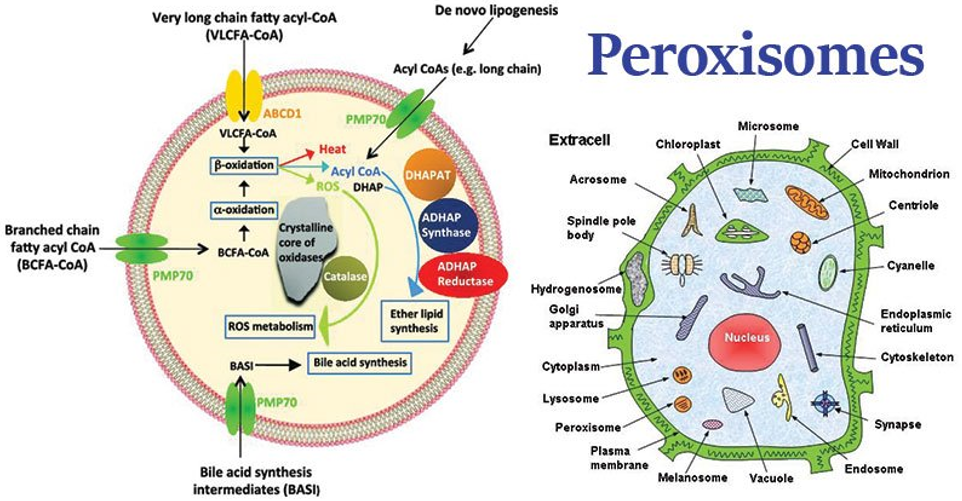Peroxisome Analysis Services
Online InquiryPeroxisomes are versatile organelles with a variety of biological and cell type-dependent functions. The presence of oxidative and antioxidant enzymes is characteristic of these organelles.
The composition of other enzymes in peroxisomes varies depending on the type, developmental period and physiological state. The number of peroxisomes, as well as the class of enzymes, also varies in similar cells. For example, yeast cells grown in a sugar-containing medium have few peroxisomes; those grown in a medium containing methanol form a large number of peroxisomes capable of oxidizing this chemical.
In plant cells, there is another type of peroxisome that contains a family of glyoxalate cycle enzymes, specifically called glyoxalate cycle bodies. During seed germination, the glyoxalate cycle enables beta-oxidation of storage lipids to produce acetyl coenzyme A, which is then converted to sugar via the glyoxalate cycle and the phosphoenolpyruvate and glycolytic pathways. There are also peroxisomes involved in the photorespiration of leaves, which are closely linked to and in metabolic function.
The peroxisomes of liver and kidney cells can act as detoxifiers. For example, alcohol can be oxidized to aldehydes by the action of enzymes in this organelle. In addition, the acetyl coenzyme A produced by the enzymatic digestion of fat by the peroxisomes can be transported via the vesicles into the mitochondria for the citric acid cycle or for biosynthetic reactions in other parts of the cell. It is estimated that about 1/4 to 1/2 of the intracellular fatty acids are broken down in the peroxisomes and the rest in the mitochondria. Defects in the biogenesis of cellular organelles and their functions lead to severe debilitating diseases. Therefore, it is important to study the role of peroxisomes in various cell types of human health and disease.
 Diagram of Peroxisomes (Irfan J Lodhi et al., 2014)
Diagram of Peroxisomes (Irfan J Lodhi et al., 2014)
Creative Proteomics provides you with a professional peroxisome multi-omics analysis platform. We have high-resolution mass spectrometry instruments and a professional bioinformatics team to provide you with peroxisome proteomic, peroxisome metabolomic and peroxisome lipidomic analysis services. We aim to provide you with high-quality services to accelerate the progress of your project and open up new horizons.
The Peroxisome Assays We Offer Include but Are Not Limited to:
1. Peroxisome isolation and purification service
2. Peroxisome proteomics analysis
- Study of protein expression patterns: study of the characterization of all proteins in a particular cell or tissue under specific conditions
- Study of protein function patterns: reveal all protein functions and their modes of action
- Study of protein-protein and protein-DNA interactions
- Analysis of post-translational modifications of peroxisome proteins
- Structural analysis of proteins
- Subcellular localization of proteins
3. Peroxisome metabolomics analysis
- Peroxisome metabolite differential expression analysis
- Qualitative and quantitative analysis of peroxisome metabolites
4. Peroxisome lipidomic analysis
- Analysis of peroxisome lipid composition and levels
- Analysis of differential expression of peroxisome lipid molecules
- Qualitative and quantitative analysis of peroxisome lipid molecules
- Peroxisome membrane fatty acid analysis
Basic Analysis
- Data quality control and molecular identification
- Expression quantitative analysis
- Differential analysis
- Functional annotation and enrichment analysis
Reference
- Lodhi, I. J., & Semenkovich, C. F. (2014). Peroxisomes: a nexus for lipid metabolism and cellular signaling. Cell metabolism, 19(3), 380-392.
* For Research Use Only. Not for use in diagnostic procedures.



